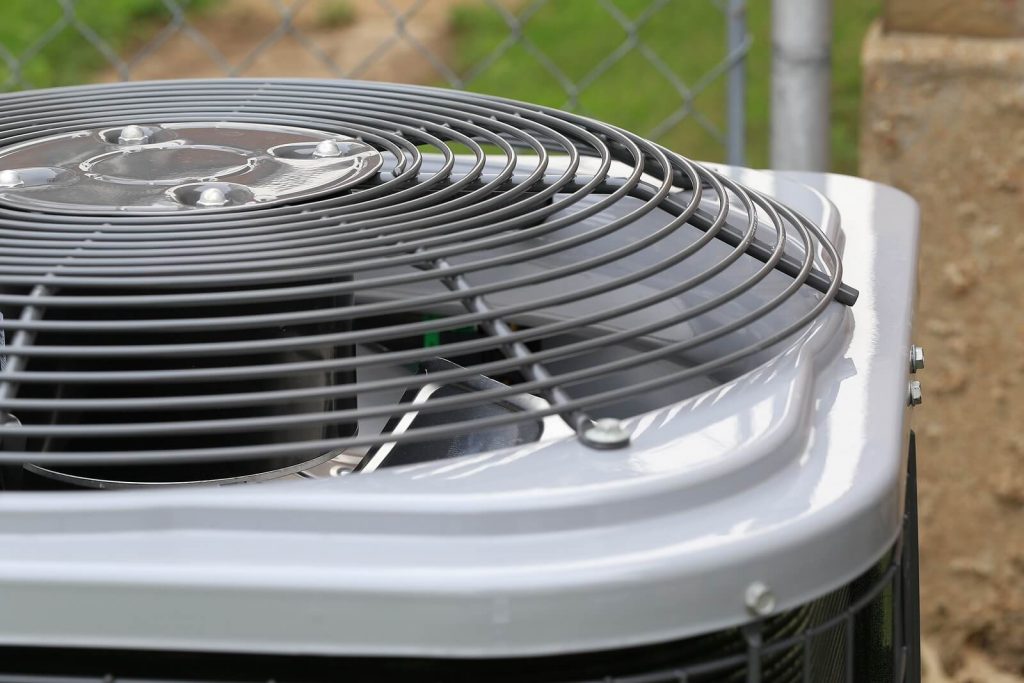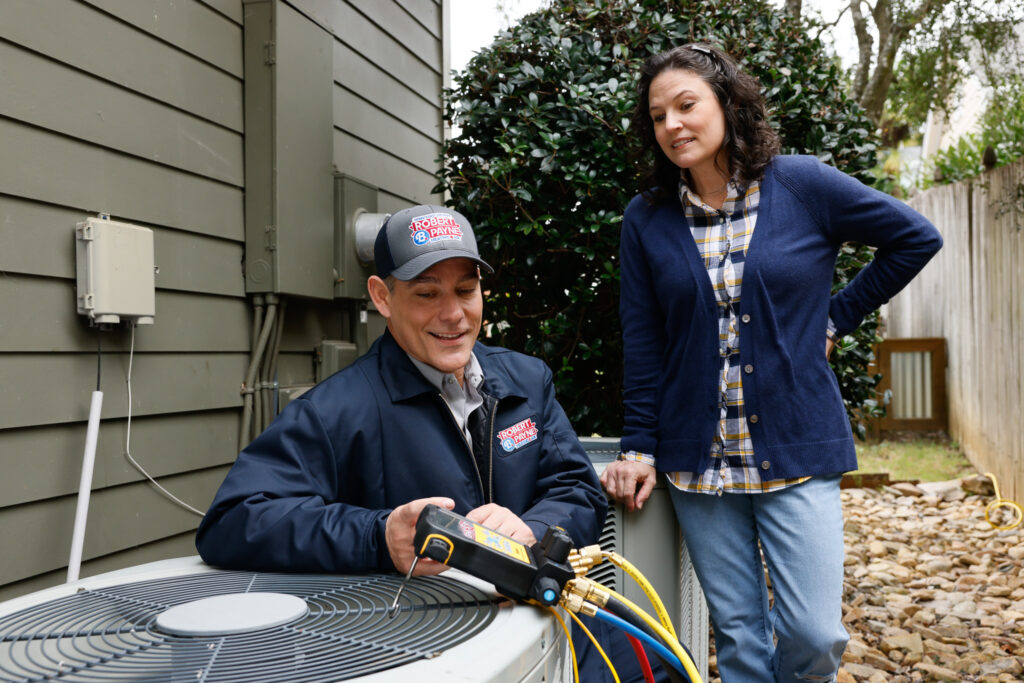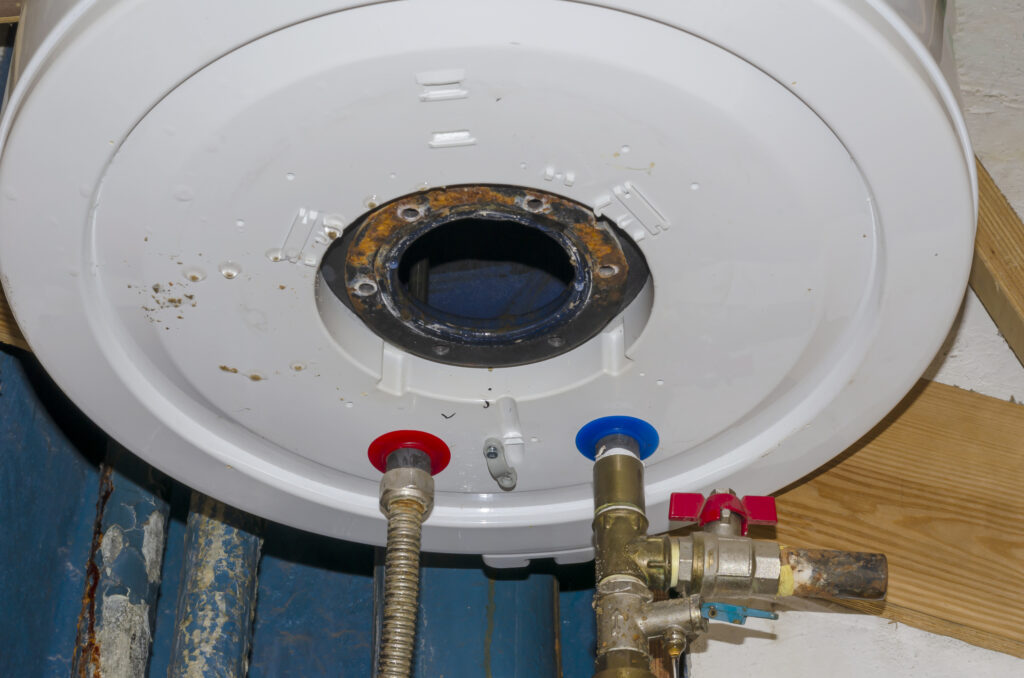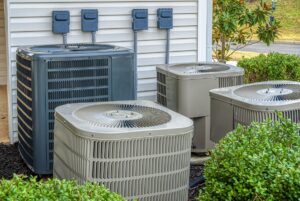When it comes to replacing your home’s heating and cooling system, your first thought might be to go with central air, also known as a forced-air system. It is a system that uses air ducts and vents to circulate air throughout your building and it is a common solution in both residential and commercial buildings. However, as with any system, forced air has its benefits and drawbacks. This article will give you a clear idea of what these are so you can choose what fits your own space best.

Central Air And Forced Air – What’s The difference?
Typically, forced air is used to describe the heating system, while central air is used to describe the cooling system. In general, a forced air system entails any HVAC equipment that utilizes a furnace or heat pump (provided that it uses air ducts) and vents to deliver temperature-controlled air into any given structure. These vents are also used by central air systems to provide cooled and conditioned air for optimal temperature regulation. This is why central air and forced air are terms that are used interchangeably.
How Does a Forced Air System Work?
Now let’s look at how a forced air system works. The system operates on a basic concept. It has an indoor unit, typically a furnace or heat pump, that is connected to ducts. These are then connected to vents installed throughout the building, which can be adjusted for optimal temperature regulation. The system works by taking in air from your space, heating or cooling it, and then circulating it back out into the building. This helps to regulate temperatures throughout the space and keep them comfortable.
What Are The Main Parts of a Forced Air Furnace?
A forced air furnace consists of the following components:
- A Burner: The gas or oil burner is the source of heat for the system. It communicates with the system’s thermostat.
- An evaporator coil: Your forced air furnace also has an evaporator coil, which is used to draw in cold air and convert it into warm air.
- A Blower: The blower collects cool air from your home and then sends it through the cold air return and into the furnace where it is warmed. It is located between the cold air return and the furnace’s main body.
- A Thermostat: The thermostat is the control center for your furnace. It monitors and regulates the temperature in your home, activating the blower to start and shut off when needed.
- A Heat Exchanger: The heat exchanger is the component that actually heats up the air. It does this by transferring heat from the hot gases produced by the furnace’s burners.
- Supply And Return Vents: The vents are the main way of circulating air throughout the building. They take in cool air, which the system heats up, and then push out the heated air into the space.
Advantages of Forced Air
Forced air systems offer several advantages that make them a popular choice in many residential and commercial buildings.
- Efficiency: Forced air cooling is fast and it naturally dehumidifies the air within your space. Additionally, it comes with built-in filters that can also be upgraded for higher-quality filtration.
- Easy to install: Forced air systems rely on a single unit, making it a breeze to install. They can slot into the system you already have in your house. For instance, they can use the ductwork you already have in place for your cooling system. This makes the installation process even easier.
- Cost-Effectiveness: Not only is installation easy, but forced air cooling can also net you lower energy bills. Forced air heating systems run on natural gas which is more affordable than electricity and also good for the environment.
- Reliability: One central unit means the need for maintenance is tiny and makes it far less likely for different parts to break down. Also, forced air heating systems are less likely to break down than heating systems that depend on electricity.
- Convenience: Forced air cooling is compatible with smart and programmable thermostats. This means that you can regulate their use as you wish.
- Higher Home Value: A forced-air system is more attractive to potential buyers and increases the value of your home. If you’re planning on selling your property, the presence of a forced-air system can make it more attractive to likely buyers.
- Modern Thermostat Compatibility: Forced air systems are compatible with the more modern thermostats, such as smart and programmable thermostats.
Disadvantages of Forced Air
Although forced air systems offer many advantages, there are also some drawbacks to consider.
- Ductwork inefficiencies: Ductwork is necessary for a forced air system, which also means that they need to be cleaned regularly (every 5 years). Otherwise, dust, allergens, mold, mildew, and other contaminants can build up and be circulated throughout your house.
- Noise: Every system makes some noise, even forced-air heating. It is forcing air through the ducts, where a build-up of pressure occurs. Professional assistance is required for unusually loud noises.
- Central Control: No way to change temperature separately from room to room; all rooms are controlled via a central thermostat.
- Upkeep: Cleaning of filters and tune-ups are needed in order to ensure optimal operation of forced air systems.
What Is The Verdict? The Ductwork Will Tell You
If you have an existing ductwork system, you may need to continue using central air conditioning in your house. If you want to replace your central air conditioner, make sure the contractor you hire is qualified. Thankfully, there are many modern, high-efficiency options to choose from.
If ductwork is not an option for you, you may also consider ductless solutions. These include multiple indoor units that are connected to a central, outdoor heat pump, and can cool your house effectively.
A new heating or cooling system is a significant investment. These systems might last you 20 years or more. Make sure you do your homework and carefully consider your choices.
Get in Touch With Our Team Today
Robert B. Payne is one of the most trusted HVAC services providers around, and we are here to help you make an informed decision. Contact us today at 540-373-5876 for a free estimate on all your residential or commercial HVAC needs. We look forward to hearing from you soon! For more information on the different systems available as well as a personalized consultation get in touch with our team starting today!






